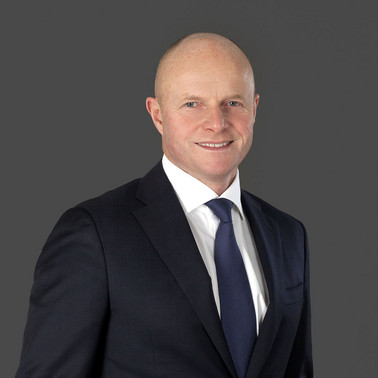New law relating to temporary financial compensation measures introduced for businesses with a significant fall in turnover
The new law relating to temporary financial compensation measures for businesses with a significant fall in turnover was implemented on 17 April. The regulations that supplement this law were introduced on the same day.
The main features of the law and the regulations that supplement the law are summarized below.
1. The compensation scheme applies to businesses that have had a minimum of a 30% fall in turnover.
For the month of March, it is sufficient that a business suffers a 20% fall in turnover since the measures to prevent the spread of COVID-19 were implemented on 12 March.
Turnover here means income from sales of goods that are delivered and services that are rendered. Please note that income or profit from capital or other financial assets are not considered to be turnover for the purposes of this compensation scheme. Profits gained from real estate other than income earned from lettings are not considered to be turnover for the purposes of this compensation scheme.
Other public grants received and income protection that are provided in connection with the outbreak of COVID-19 shall be included in the calculation of the monthly turnover figures, with the exception of grants provided by this compensation scheme.
The calculation of a fall in turnover for March will be calculated as follows:
Turnover in March 2019, adjusted with the business' percentage change in turnover for the period from January to February 2019 to January and February 2010, equals the calculated normal turnover in March 2020.
The percentage difference between this turnover and the actual turnover for March 2020 will equal the fall in turnover suffered by the business. The same method shall be used to calculate a fall in turnover for April and May.
Businesses that were established less than a year before the calendar month that a grant is being applied for, or due to the restructuring of the business cannot identify the relevant turnover, shall use the average monthly turnover in January and February 2020 as a basis for the calculation.
The compensation scheme does not apply to businesses that were insolvent before the outbreak of COVID-19 that were registered as liquidated at the Companies Register, that are under administration or where a request has been made for compulsory liquidation.
2. Furthermore, the business will need to satisfy the following conditions: The business will need to have paid tax, costs and advance taxes that are due before 29 February 2020.
The tax return for wealth tax and income tax and the yearly accounts for 2018 needs to have been delivered.
There cannot exist any compulsory basis or agreement that provides special coverage rights in paid subsidies to the enterprise.
3. The scheme applies to March, April and May, but can be extended.
4. The following costs are considered "unavoidable fixed costs" and the compensation scheme apply to them:
- Post 6300 Letting of premises, but limited to commercial premises
- Post 6310 in the Income Statement 1, leasing of a car
- Post 6340 Lighting and heating
- Post 6395 Renovation, water, sewerage, cleaning, but only to the extent that the cost is considered to be a public cost.
- Post 6400 Letting of machinery, inventory, transportation means, etc.
- Post 6700 External services, but only costs relating to accounting and audits
- Post 6995 Electronic communication, postage, etc.
- Post 7040 Insurance and costs for transportation means
- Post 7490 Membership fees, but only if the cost can legally be deducted from taxes
- Post 7500 Insurance premiums
- Interest payments on debt to banks, credit institutions and bonds
- Interest payments on debt to other financial institutions, provided that the interest cost is equivalent to the same interest expense with the lender on debt from banks, credit institutions and bonds.
5. The compensation scheme will not apply to the following costs:
Costs that have arisen as a result of entering into contracts after 1 March 2020, or contracts that have increased above the normal price adjustment after 1 March 2020. Costs that vary with turnover, goods and services that have been produced or are connected to time limited assignments, etc. will also not be covered by the compensation scheme.
6. Accruals
Those costs that are fixed and unavoidable shall be assigned uniformly over the period during which they accrue.
Fixed, unavoidable costs that are incurred periodically shall be distributed evenly over the period that the cost gives the business an advantage.
In the case of leasing and renting, fixed unavoidable costs that are set for rental amounts shall be distributed evenly over the period the rental amount applies. If you pay quarterly rent, the cost should be distributed throughout the quarter.
7. Businesses whose closure has been enforced by the state will have up to 90% of their unavoidable costs covered. The compensation shall be calculated as follows: The fall in turnover*unavoidable fixed costs * the adjustment factor of 90%
8. Businesses whose closure has not been enforced and who have suffered a fall in their turnover of 30% (20% in March), will have up to 80% of their unavoidable costs covered.
The compensation shall be calculated in the following way: Fall in turnover* (unavoidable fixed costs – the business' share of NOK 10 000)*(adjustment factor of 80%). Note that a business will have to pay their own share of NOK 10 000 where their closure has not been enforced.
9. Minimum amount that a business can require compensation for is NOK 5 000. The maximum amount is set at NOK 80 million, but grants that exceed NOK 30 million will be reduced by a factor of 0.5.
10. Group
a) In the event the sum of the grants granted to all entities in a company group exceed NOK 30 million, the application shall be sent as a collective application on behalf of the group.
b) The limitation of NOK 80 million, and the reduction of 0,5 for grants of over NOK 30 million apply to a group collectively.
11. Compensation scheme will apply to all businesses registered in Norway, which are taxable and which have been registered in the Companies Register before 1 March 2020.
In relation to branches of internationally incorporated business, these will be required to be operational and taxable in Norway. For tax transparent companies (partnerships etc.), the owners/partners must be taxable to Norway for the income earned from the tax transparent company, in order to be included.
The following businesses are excluded from the compensation scheme:
- The finance industry
- Production and the transfer of electricity
- Oil and gas extraction
- Aviation companies with Norwegian operation permits
- Kindergartens
- Businesses without employees (except for individual companies where the business is the holder's main source of income and an ANS where at least one of the participants has the income from the company as its main source of income)
12. Specifically on foreign companies with operations in Norway, refer to paragraphs 2-3 (1) letter b of the Taxation Act
a) Only income derived from the sale of goods and services that are taxable in Norway will be included.
b) Only costs related to the taxable business in Norway are counted.
13. It is not prohibited to withdraw dividends from companies that use the scheme. But it has been shown that this is a national movement, and it is therefore encouraged to show moderation. It is expected that the support will not contribute to bonuses, salary growth for senior executives or dividends beyond what is charged as ordinary salary and tax.
14. It is not prohibited to dismiss employees. But it is expected that companies using the scheme will secure employment and avoid unnecessary redundancies. Here we also refer to the connection with the changes in the laying-off regulations.
15. Especially on labor costs
As of today, labor costs are not covered by the scheme. But the government has warned that this will come. This applies first and foremost to companies that are required to close, but which have other regulations applicable to them that require them to have staffing in place. For example, enterprises where the care of animals is necessary even during the period when the enterprise is closed. It will also be considered whether the scheme should include unavoidable wage costs for a larger scope of enterprises, but this has not been clarified.
16. Especially about seasonal businesses
As of today, there are no special adjustments for companies that are seasonal. These are companies that typically make money for a short period, and this money covers the costs throughout the year.
Examples are ski resorts and amusement parks. Here it has been announced that there will be a special calculation model for this type of enterprise. Even though a new model is expected to emerge, these companies are encouraged to apply now. Calculations will take place at a later date, which will look back at the calculations that have already taken place.
Application for compensation
1. The application must be completed and submitted on the website kompensasjonsordning.no. The website contains supplementary information and guidance.
2. Only persons registered with a key role in the Companies Register can submit an application. This includes the Chairman of the Board, the Managing Director, the authorized accountant and the auditor.
3. Undertakings that are required to close their business by the state will be able to apply as of Saturday, April 18, 2020, while other companies may apply as of Monday, April 20, 2020.
4. Applications for grants under the scheme may be submitted at the earliest after the end of the month in which the grants are to cover. However, applications for grants for April can only be submitted on 15 May. The deadline for submitting applications is 30 June 2020.
5. Before opening the application form, you will receive more details of what information is needed to fill out the form. Including the company's turnover and costs.
To make it easier to fill out the form, the following should be stated in advance:
a) Figures for the month the company is applying for grants:
- Fixed, avoidable costs for the month the company seeks grants.
- Turnover for the month the company seeks grants.
(b) Figures for previous periods:
- Sales for the corresponding month in 2019
- Sales for January and February 2019
- Sales for January and February 2020
c) If the company was not established in March 2019, only figures for 2020 are needed.
d) Documentation shall not be enclosed with the application, but a statement must be included supporting the figures and calculations with reference to relevant accounting material. This must be kept for five years from the end of the financial year, unless a longer retention period is required in accordance with the Accounting Act.
6. After the form has been completed and submitted, you will receive a notification from Altinn when the application has been processed. The application is usually answered immediately, but it can take up to three weeks. If the application is approved, the money required that that has been accounted for in the application will be transferred into the disclosed bank account within 2-3 business days.
8. To prevent abuse, who receives grants and the exact amount will be publicly available and searchable. In retrospect, an auditor's statement or statement from a state-authorized accountant will also be required and the applicant shall submit this when submitting its annual accounts for 2020. Applicants who are not required to submit a an accounting report shall submit such a confirmation when delivering their tax return for wealth and income tax for 2020.
DLA Piper Norway recommends companies that are considering applying for compensation to review the terms thoroughly and to contact their own accountant so that the necessary documentation is prepared and the correct application is submitted.




